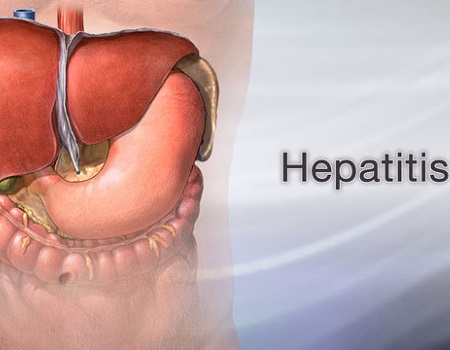As Nigeria joins the global community to mark the World Hepatitis Day 2020, on Tuesday, the President, Hepatitis Zero Nigerian Commission and Representative to the African Union (AU), Dr Mike Omotosho, has described Hepatitis as more deadly than COVID-19; saying that 500 million people were affected by Hepatitis globally, while it also kills 1.4 million people yearly.
Addressing a press briefing to commence the activities line up to mark the World Hepatitis Day 2020 in Abuja on Monday, Dr Omotosho, said Hepatitis is a silent killer, adding that 4,000 people die of the disease daily across the globe.
In Nigeria, he pointed out that about 21 million people were estimated to be living with Hepatitis; while he regretted that despite this huge figure, there was no awareness about the disease in the country.
Stressing the need for awareness to be created about the deadly disease, Omotosho said every Nigerian should move quickly to undergo Hepatitis test to know their status, stressing that this was imperative since the treatment is available, unlike the COVID-19 pandemic.
He lamented that Nigeria was presently not among the country on the verge of achieving zero Hepatitis in the year 2030, the year target for the elimination of Hepatitis globally.
ALSO READ: COVID-19: Bayelsa slashes 2020 budget by 24 per cent
Omotosho said: “The prevalence of hepatitis on a global scale is staggering. Although preventive measures and treatment are available, unfortunately, most people are not aware of their status and additionally do not have access as a result of the cost of vaccination and treatment.
“According to the Federal Ministry of Health, Nigeria is one of the countries with the highest burden of viral hepatitis with a prevalence of 11 per cent of Hepatitis B and 2.2 per cent of Hepatitis C. Across the country, the male to female distribution varies and children are not spared. Cases of Viral hepatitis are most commonly found among the age group of 21 to 40 years.
“The level of knowledge of viral hepatitis remains low amongst Nigerians despite the fact that it is a leading infectious cause of death and claims the lives of many each year. As a consequence, most of the 17-21 million Nigerians estimated to be living with Viral hepatitis do not know that they are infected, placing them at greater risk for severe, even fatal, complications from the disease and increasing the likelihood that they will spread the virus to others.
“Eliminating hepatitis by 2030 as contained in the Sustainable Development Goals (SDGs), will require enduring innovation, better access to medicines, and improved health services. WHO’S new recommendation is that everybody should have access to hepatitis C testing and curative treatment and also global health communities should come together to officially begin moving towards the elimination of viral hepatitis by 2030.”
He added: “To support countries in moving towards achieving the global hepatitis goals under the Sustainable Development Agenda 2030 WHO encourages us to work in the areas of raising awareness, promoting partnerships and mobilizing resources; formulating evidence-based policy and data for action; preventing transmission; and scaling up screening, care and treatment service.”
He pointed out that the Global Hepatitis Eradication initiative as a Commission, is, therefore, dedicated to a vision of a Hepatitis free world through advocacy, screening, prophylaxis and treatment.
WATCH TOP VIDEOS FROM NIGERIAN TRIBUNE TV
- Relationship Hangout: Public vs Private Proposals – Which Truly Wins in Love?
- “No” Is a Complete Sentence: Why You Should Stop Feeling Guilty
- Relationship Hangout: Friendship Talk 2025 – How to Be a Good Friend & Big Questions on Friendship
- Police Overpower Armed Robbers in Ibadan After Fierce Struggle






